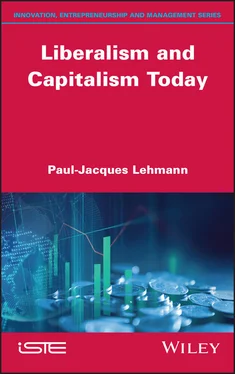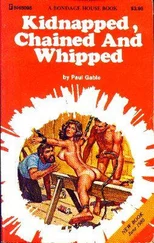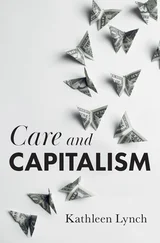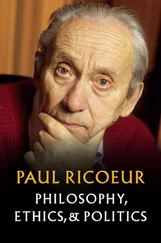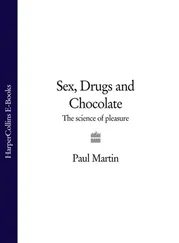The result has been a significant reduction in the role of both the upper and lower classes and a standardization of lifestyles and standards of living for the entire population: “I am aware that amongst a great democratic people there will always be some members of the community in great poverty, and others in great opulence; but the poor, instead of forming the immense majority of the nation, as is always the case in aristocratic communities, are comparatively few in number, and the laws do not bind them together by the ties of irremediable and hereditary penury”.
However, the number of very wealthy people can only decrease, mainly because property wealth is much less important. As a result, we find a “[…] multitude of men almost alike, who, without being exactly either rich or poor, are possessed of sufficient property to desire the maintenance of order, yet not enough to excite envy”. The greater equality that spreads then makes the situation of the poorest even more unbearable and leads to movements that demand ever greater equality, since humans are never satisfied with their lot.
In his historical research, de Tocqueville compares people who have remained at a primitive stage, under the control of a government that oppresses them in great misery but “who have serene expressions and can feign a cheerful mood”, and people who are much freer and more cultured (taking the example of the United States), benefiting from much more favorable conditions that should normally make them happy, but who appear “serious and almost sad even in their pleasures”. This difference can be explained by the fact that “the former do not think of the evils they endure, while the latter constantly think of the goods they do not have”.
Therefore, if democracy appears in de Tocqueville’s work as an inevitable evolution of society, it is not without danger, which can drift towards a demagogic plebiscitary society. Indeed, “democracy encourages a taste for physical gratification: this taste, if it becomes excessive, soon disposes men to believe that all is matter only; and materialism, in turn, hurries them back with mad impatience to these same delights: such is the fatal circle within which democratic nations are driven around”. The fact remains that democracy makes it possible for disadvantaged men to benefit from the means to reduce inequalities, essentially thanks to the existence of countervailing powers. However, we must be aware that there will never be an equalization of fortunes, simply a reduction of the most important inequalities.
In fact, if the idea of equality progresses in people’s minds, the reality is quite different and will probably always be so. De Tocqueville emphasized this several times when he saw first-hand the evils of pauperism during his visits to the first English factories. He then expressed two contradictory feelings. First, his optimism: if there is indeed a real inequality of conditions, in their imagination, people consider that the gaps between wealth and poverty are small and that command and obedience do not create great differences between them: “In their inmost convictions the master and the servant no longer perceive any deep-seated difference between them, and they neither hope nor fear to meet with any such at any time. They are therefore neither subject to disdain nor to anger, and they discern in each other neither humility nor pride”. However, second, his pessimism: in an aristocratic society, everything (wealth, education, rights) brings master and servant in opposition, while time eventually brings them together according to the memories they have in common, yet in a democratic society, these two categories of people always remain strangers to each other. Thus, he recognizes that although master and servant are much more likely to live side by side in democratic societies and have common occupations, their interests are nonetheless constantly diverging.
In addition, the permanent search for greater equality may lead to a restriction of freedom due to an increasing centralization of power in favor of the state and an oppressive majority that seeks, through ever more restrictive regulations, to make the poor and the weak more equal, while it is the opposite that happens. We will see if these predictions are realized nowadays, since we know that the desire for “more and more” is only growing as the economy offers new consumption possibilities.
1.2. The right of ownership as a necessary condition for savings and capital formation
The rights underpinning liberalism existed long before the passing of the laws that would simply ratify the social pact by a social contract. The meeting of the general philosophical principles of liberalism that we have just defined, and its legal implementation, can only take place in a democratic political system.
Liberty, equality, individual interest and responsibility are only obtained and implemented within a strictly appropriate legal framework with control guaranteed by the public authorities. In particular, these principles require that the right of ownership exist and be respected, here, too, materialized by the free signing of contracts. Indeed, the right of private property is not only the precondition of capitalism, but also its cornerstone.
Thus, Friedrich Hayek goes so far as to say that where there is no property, there is no justice. He considers that the right to property must be established so that all members of a community can own property, freely dispose of it and be protected against its usurpation. In this regard, it is worth recalling that in the Declaration of the Rights of Man and of the Citizen, private property is recognized as an inalienable right that protects the individual from their neighbors as well as from political power. All contracts must be governed by the regime of freedom. Thus, the first example of private property, land ownership, must be extended to all contracts in which property is likely to encourage savings.
1.2.1. Freedom as a condition of private property
The existence of property actually preceded its legal existence, that is, the right of ownership. For liberals, this right is real wealth, created by people, which benefits not only each individual, but also society as a whole. As long as this type of possession had its origin only in conquest, it did not need to be protected by a right, and indeed it was not. On the contrary, as soon as it was obtained through the fruits of labor, the law had to intervene: from the freedom of labor comes the desire to become rich and the right of ownership that underlies it. Property rights and freedom of contracts then become the consequence of the will of people to live together by bending to natural laws and striving to defend their own domain. These are the two indispensable sources of economic independence from political power.
From an economic point of view, property appeared as soon as people saw their needs increase: the right of ownership established the link between the efforts that the individual was led to make and the needs to which those efforts corresponded. From that moment on, they no longer lived from day to day, no longer simply satisfied their hunger, but were able to use the fruits of their property as they pleased: for de Tocqueville (2010), “man as an economic owner is born. Until then, he was only the owner of his faculties, his physical and intellectual strength, his feelings. It was simply a fact that then became an idea. It will be at the origin of an organized society and will become inseparable from the order and development of civilization”. From then on, the right of ownership would impose itself and become a sacred right. This is considered to be at the source of the constitution of nations, of their progress and ambitions.
Читать дальше
